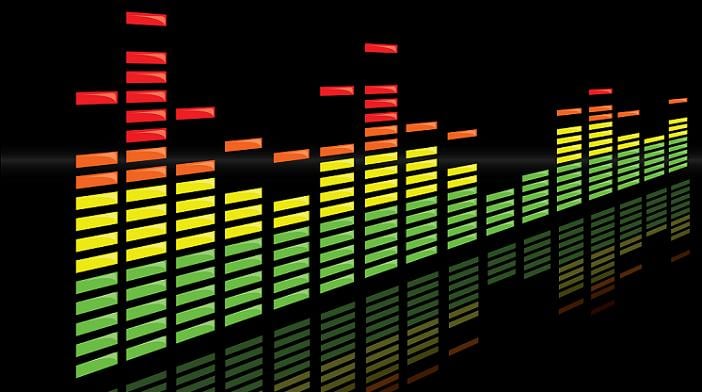 Andrew Apanov. (Image via store.dottedmusic.com)
Andrew Apanov. (Image via store.dottedmusic.com)
You've all heard of startups, right? They're kind of everywhere right now; from Uber to PledgeMusic to Dropbox to Audiokite, startups touch our lives in innumerable ways. It's not exactly a stretch to make heavy comparisons between startups and musicians, both standing at the foot of a similar mountain – creating something from nothing, trying to get people to care about what you're doing, and fighting to survive another day... every day. We think that's a valuable connection to make and enlisted some industry friends to help share five practices you should borrow from the way startups do things today.
1. You're either growing or you're diminishing
Andrew Apanov, the founder of WeSpin, a music education service and Audiokite partner, tells it like this:
"What an artist needs doesn't differ much from what every startup is chasing: growth. Acquiring customers is similar to winning fans; both companies and musicians need to engage users and listeners to increase their 'lifetime values,' and many artists have to fight churn, too. Translation: your success is intimately tied to your ability to not only find new fans, but to keep them engaged. Sounds easy, but both startups and music creators know it's anything but. Where do I start? How do I find them? Who am I even looking for? What am I asking them to do once I do find them?"
If you're not consistently building a bigger, more engaged audience, everything will stagnate. That's why investors always want to see "hockey stick growth" charts from startups pitching them.
2. What you don't know, you don't know
The famous carpentry proverb (because there are so many) goes: "Measure twice, cut once." Acquiring new fans, distributing your product, and getting better at everything become much easier when you have a clear path and measurable goals.
The first step is to ask, "Why?" as often as you possibly can. Some people like your music – great, find out why. Some people don't like your music – even better, find out why. You get a ton of Facebook likes and Spotify plays in Saskatchewan – weird, but awesome, so find out why. This is the foundation of consumer research. Startup marketers, CEOs, and investors are infamous for measuring everything they do, along with every action their target market takes. They know everything they possibly can about their audience, from motivations and desires to how individuals react to different messaging and design on a website. You need to know things like which fans of yours are most likely to attend a live show, which streaming services they prefer, and which social media channel is the most effective for increasing email newsletter signups.
[4 Online Tools You Should Be Using to Gather Insights About Your Fans]
This level of hyper-focus allows decisions to be made based on real data, instead of guessing or "doing what has always been done" and hoping for the best. Which leads us to the challenge of cutting through the noise.
3. Do your own thing, or risk looking like everybody else
It's easier than ever, right now, to make high-quality music, share it with the world, and connect with an audience. That's great and all, but it means that every musician out there has access to more or less the same tools. This results in a super noisy environment, and trying to scream louder than anyone else to get the attention of fans isn't always the best way to go.
Let me guess – you have a Facebook page, a Twitter account, maybe your own website, you're set up on SoundCloud, and maybe Spotify. You tweet a bit about your shows, post pics on Facebook, upload songs to Bandcamp, and hope for the best. Did you know less than 10 percent of your followers actually see your Facebook posts (some research shows it's actually less than 5 percent)? Following the standard strategy of "make great music and wait for lightning to strike" simply ain't gonna work anymore.
Here's what Mike Hoy, CEO of BoomboxFM, thinks about doing things differently:
"On an elementary level, I think musicians and startups should do whatever they want rather than try to apply arbitrary canonical standards. With any creative enterprise, whether a band or a startup, there's no one way to become successful. There's no clear path. Every startup is different, every band is different. They all have an infinite number of variables that will affect their potential success, and you can agonize over one variable or another endlessly while it's probably better to just trust your gut."
The crew over at band-and-brand-connector FanDistro dropped this knowledge:
"Connecting with fans by offering them interesting experiences and personal gifts can make a fan for life! The DIY artist should experiment with different platforms and strategies to find out what resonates with fans and keeps them engaged."
In my career as a startup marketing guy, I've seen time and time again how crucial it is to differentiate yourself, not only in branding and style, but in how you acquire and communicate with fans. Be creative, try a bunch of crazy tactics out (measuring each one, of course), and do something unexpected to grab attention.
4. A product with crappy marketing is like marketing a crappy product: pointless
Dan over at Feature.fm has a unique insight into this paradox:
"Every artist is just like a startup and runs into the same challenges as any new business. They need to work with a tight budget, raise capital, gain market share, promote effectively, execute their vision, and run into a bit of luck along the way. A lesson that we can provide to artists as a startup ourselves is that going to market and promoting your product is just as important as creating an amazing product itself. In the artist's case, their product is music. You can spend years creating an amazing product, but if no one knows about it, then you'll never be successful."
If you make amazing, soulful, professionally produced music but have no real strategy for getting it into the headphones of the right fans, you're in trouble. Likewise, even if you have the most foolproof method for acquiring a huge audience, if your music (the product) sucks, all marketing plans will fall short.
In other words: a great product plus proven marketing equals the greatest chance for success. If you reduce the quality of either variable, your chances of overall success will be diminished by the same amount.
[The Musician's Guide to the Complete Marketing Plan]
5. Make money or grow a fanbase, but do either one quickly
Not to be overly dramatic, but just like with startups, the struggle for an independent artist is to avoid death. The two ways to avoid death are to make money or generate traction in the form of a growing audience, until you hit a crucial point where your bank account allows you to quit that day job and push forward. That might come from ticket and album sales, or that might come from a record label (record labels are basically venture capitalists for artists).
Focusing on making money will likely cause you to grow slightly slower, but you'll have proven the audience values what you present enough to pay for it. You'll also be able to reinvest the money back into your business (music is an art and a business). Focusing on growing your audience over making money from the get-go will enable you to prove that you have ready-and-waiting fans who could become a monetizable unit.
Regardless of the path you take, it's a race to that breaking point. Your life depends on it.
Dave Marcello is Head of Artist Growth for Audiokite Research and co-founder of BoomboxFM. At Audiokite, he is responsible for growing and engaging their artist customer base and establishing the company as a thought leader in music data analytics.







